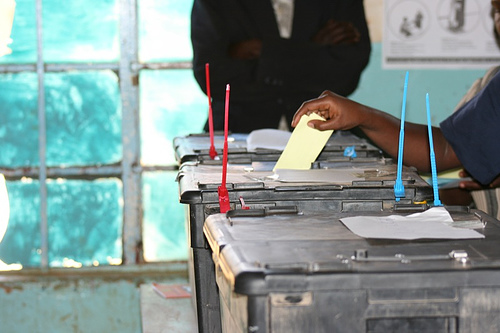Kenyans are generally an optimistic lot and I hate it when I burst the optimism that levitates around the country. Unprecedented historic events most often than not galvanize the country with hope, although this sense of hope or more aptly put ‘sense of false hope’ allows for recession of wisdom and reason especially among (us) the intellectuals who are supposed to be the noetic anchors of Kenyan society. Unfortunately this is what happened a few years back. In the year 2010 Kenyans overwhelmingly passed into being a new constitution that was supposed to extricate the country from malaise and maladies that plagued the country’s governance. So, a period during which the country was enveloped in a particularity strong gush of optimism, Kenyans emotionally voted in a new constitution.
In the heat of the moment of Kenyan intellectuals intentionally absconded from their duty and obligation of advising the country on questions of future being. Forethought and caution were thrown to the dogs, we all danced and made merry while the champagne lasted. Now the champagne glasses are empty and we are left with the colossus a constitution, which will be very difficult to implement. This in essence means that the goals envisaged by passing the new constitution will be either be unachievable or suffer unnecessary time lags in their achievement.
Fast forward, two years from the historic day and Kenya already finds itself in a constitutional crisis. It is indeed unimaginable that the most nibble legal minds misled the country and did not monish the country about forthcoming constitutional paralysis. For the purpose of this article it would be prudent to make reference to articles in the Kenyan Constitution that seemingly seem impossible to implement. Article 81 (b) of the Kenyan constitution specifically states that ‘not more than two-thirds of the members of elective public bodies shall be of the same gender.’ Whereas I must acquiesce that the envisages of the constitution especially with regards to remedying historical gender asymmetry is laudable lacunas in the document mean that we could end up having a bloated upper house of parliament.
The stroke of the president’s pen that signed and promulgated the new law into being ushered in the following possibilities for the Kenyan tax payer; a bloated upper house of parliament, Kenya’s parliament which is unicameral today happens to have 212 members, the post 2012 parliament will be bicameral in nature with the upper house having at least 350 members and the senate consisting of at least 60 senators. In addition Kenyans will have to make do with the fact that they will have to pay for the hitherto non-existent county government.
Constitutional crisis aside, what generally makes me more apprehensive as a Kenyan tax payer, and I know many are with me are the increased levels of government when the new constitution actually comes to full implementation. One of the core inspirations that made Kenyans crave for a new constitution was the felt need to devolve the resources of the ‘central government.’ The notion that a devolved form of government would be a panacea to hitherto and unresolved problems of distribution of and re-distribution of national resources in the country. Kenyans however did not anticipate that devolution of central government powers and authority would be accompanied by the devolution of ills and malaises of the aforementioned government. As a consequence Kenyans and the Kenyan tax payers are faced with the fact that ills such as corruption, nepotism and a general misuse of resources that were the characteristic norm with the central government will increase 47 fold, well at least the number of County governments we expect past 2013.
The question that begs though is, can the Kenyan tax payer afford paying for a burgeoning bureaucracy? Fiscal allocation by the Kenyan government allocates 88% of all budgetary resources available to recurrent expenditure, with the rest going to development projects. A whopping 88% percent is a big number especially because the requisites for development require that a state save at least 25% of all resources available for development projects in the future.
Although Kenya needed a new constitutional dispensation, in the heat of the moment our vision was clouded by a utopian dream we had of a society we so desperately needed yet had little resource to achieve and govern. Now we sit and wait hoping that our utopian vision shall not boomerang against us and praying that current discoveries in natural resources especially gas and oil shall bankroll our utopian dream. Now we wait.


